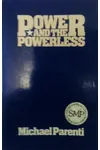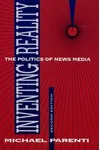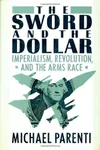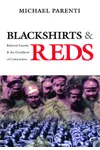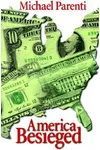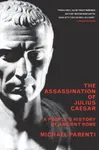Picture a fiery scholar wielding sharp wit and a pen to challenge the status quo—meet Michael Parenti! Born in 1933, this American political scientist, historian, and cultural critic has spent decades dissecting capitalism, imperialism, and media manipulation with a Marxist lens. Known for his accessible yet profound books and lectures, Parenti’s work sparks curiosity and inspires change, making him a beloved voice of the American Left.
From his working-class roots to his global influence, Parenti’s journey is one of resilience and rebellion. Let’s dive into the life, works, and lasting impact of this intellectual dynamo!
The Making of Michael Parenti
Raised in an Italian-American working-class family in New York City’s East Harlem, Michael Parenti grew up surrounded by the grit and vibrancy of urban life. After high school, he worked various jobs before pursuing higher education, earning a BA from City College of New York, an MA from Brown University, and a Ph.D. in political science from Yale. His early career as a professor at institutions like the University of Illinois was marked by activism—most notably in 1970, when he was arrested and beaten by police during a Vietnam War protest, an incident that derailed his academic career but fueled his resolve.
Undeterred, Parenti transitioned to writing and public speaking, channeling his passion for justice into works that blend scholarly rigor with street-smart clarity. His experiences shaped his unflinching critiques of power, setting the stage for a prolific career.
Michael Parenti’s Unforgettable Works
Parenti’s bibliography is a treasure trove of incisive analysis, with over 20 books tackling everything from U.S. politics to ancient history. His breakthrough, Democracy for the Few (1974), now in its ninth edition, exposes how economic elites dominate American governance—a theme that resonates in classrooms and activist circles alike. In Inventing Reality: The Politics of News Media (1986), Parenti unveils conservative biases in mainstream media, earning praise from The New York Times for its compelling evidence.
Blackshirts and Reds: Rational Fascism and the Overthrow of Communism (1997) is a fan favorite, dissecting fascism’s ties to capitalism and the fallout of communism’s collapse in Eastern Europe. Meanwhile, The Assassination of Julius Caesar: A People’s History of Ancient Rome (2003) reframes Caesar’s death as a class-driven conspiracy, showcasing Parenti’s knack for making history relevant. His style—lively, direct, and packed with historical anecdotes—makes complex ideas accessible, inviting readers to question the narratives they’re fed.
Whether analyzing Hollywood’s role in Make-Believe Media: The Politics of Entertainment (1992) or NATO’s actions in To Kill a Nation: The Attack on Yugoslavia (2000), Parenti’s works challenge readers to see the world through a lens of class and power. His lectures, often sampled in punk rock albums like Choking Victim’s No Gods, No Managers, amplify his reach, blending academic depth with populist appeal.
Why Michael Parenti Matters
Michael Parenti’s impact lies in his ability to make radical ideas relatable. His critiques of capitalism, imperialism, and media have inspired generations of activists, scholars, and artists, from punk rockers to documentary filmmakers. By exposing the mechanisms of power, he empowers readers to think critically and act boldly. His books, translated into over 18 languages, have found global audiences, cementing his role as a champion of social justice.
Despite being blackballed from academia for his outspoken views, Parenti’s resilience shines through. Awards like the 2007 Certificate of Special Congressional Recognition from Representative Barbara Lee and a 2014 Lifetime Achievement Award from the Before Columbus Foundation highlight his enduring influence. At 92, he remains a beacon for those fighting for a fairer world.
About Michael Parenti
- Born: 1933, New York City
- Key Works: Democracy for the Few, Blackshirts and Reds, The Assassination of Julius Caesar
- Awards: 2007 Certificate of Special Congressional Recognition, 2014 Lifetime Achievement Award
- Fun Fact: His lectures are sampled in punk rock albums!
Ready to challenge the system? Snag Blackshirts and Reds and dive into Michael Parenti’s bold, eye-opening world!



